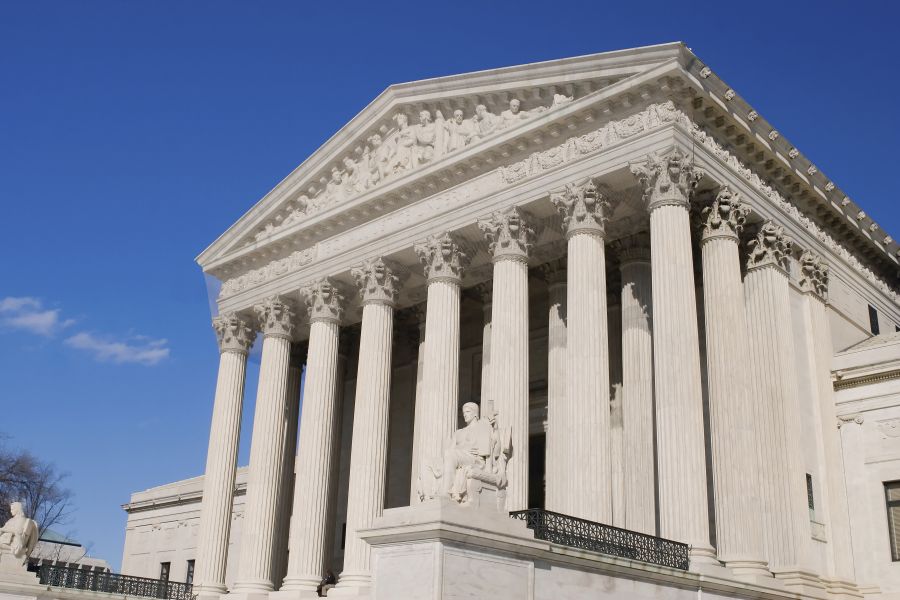PERSPECTIVE: Reclaiming religious freedom from today’s culture wars
First Five by the Freedom Forum Institute
Jan 27, 2022
CHARLES C. HAYNES
Download Word doc here.
Thanks to America’s culture wars, “religious freedom” has become a term so toxic, divisive and confusing as to be almost unusable in public discourse.
POLITICS POISONS RELIGIOUS FREEDOM
The latest blow to the reputation of our first liberty comes from Christian pastors handing out “religious exemption certificates” to people seeking to evade vaccine mandates for political reasons – sometimes after requiring a donation. Good politics for pastors, perhaps, but poisonous for religious freedom.
To state the obvious, ministerial distribution of “religious exemptions” for anybody and everybody has nothing to do with authentic faith. This practice only cheapens religious freedom, further undermining public support for legitimate religious claims of conscience based on sincere belief.
Phony pandemic religious exemptions reinforce the perception on the left that many religious demands for exemptions and accommodations are a cover for motives other than religious. Supporters of this view charge that religious freedom has been weaponized by conservative Christians to promote social views that harm others, especially LGBTQ people.
Meanwhile on the right, many see laws preventing discrimination against LGBTQ people as attacks on their religious freedom. Demands for religious exemptions to civil rights laws continue to proliferate in health care, social services, places of public accommodation and elsewhere. The fight has just begun.
RELIGIOUS FREEDOM HASN’T ALWAYS BEEN FOR ALL
Of course, bitter debates over the meaning and scope of religious freedom in America are nothing new. Guaranteeing religious freedom in the First Amendment was a historic decision. Living up to those principles has been another matter. For much of our history, America was a semi-established Protestant nation where those in the majority limited the rights of Catholics, Jews, Mormons, Jehovah’s Witnesses and others in the minority.
For millions of African Americans, religious freedom – like other freedoms – was nonexistent for centuries. When formerly enslaved people were finally able to gather openly and freely in churches, it was not surprising that they used that freedom to organize and fight back. Violent attacks on Black churches – then and now – are a reminder that “religious freedom” has a very different meaning for people who continue to suffer the effects of systemic racism in America.
Native Americans have not only been denied religious freedom, but they have also had traditional sacred practices stripped from them through oppression and coercion. Despite some progress in protecting Indigenous people, courts and governments still fail to protect Native sacred sites and practices. Native Americans are still waiting for the First Amendment to apply fully to them.
The lesson of this difficult history is that we continue to fall far short of creating a level playing field that protects religious freedom or liberty of conscience for people of all faiths and none. We can and must do better. With exploding religious diversity, our country needs now more than ever the First Amendment ground rules that enable us to live with our deepest differences.
Consider the rise of hate crimes in America directed at Muslims, Jews, Sikhs, Hindus and others, one of many disturbing signs that constitutional principles are meaningless if people live in fear for their safety. Only a safe society is a free society. Erosion of public support for religious freedom – caused by culture warriors – can easily translate into erosion of protection of vulnerable religious minorities.
RENEWING FUNDAMENTAL RIGHTS FOR ALL PEOPLE
In our divided society, we must recover a shared vision of religious freedom. It will not be easy. A good place to start would be to take the advice of George Mason, a founder committed to religious freedom, and return to first principles. That means reaffirming – across our differences – liberty of conscience as a fundamental right for every person. And it requires practicing our civic duty to guard that right for others, including those with whom we deeply disagree.
To renew first principles, both sides in the culture wars must cede some ideological territory. On the right, conservative Christians must affirm the humanity and civil rights of LGBTQ people. On the left, LGBTQ advocates must acknowledge that not all religious claims of conscience are motivated by bigotry; many are grounded in deep convictions about what their God requires. With a measure of good faith on both sides, finding common ground on the meaning and application of religious freedom might be possible.
PROTECTING CONSCIENCE AND DIGNITY
A good rule of thumb going forward: Work together to protect liberty of conscience whenever possible without doing harm to the dignity and rights of others. Two examples of how this might work:
- Allow pharmacists to opt out of providing medication such as the “morning after pill” that violates their conscience if, and only if, another provider is immediately available to fill the prescription.
- Allow county clerks to opt out of issuing marriage licenses to same-sex couples in violation of their conscience if, and only if, those clerks do not provide marriage licenses to anyone and other clerks are readily available to provide marriage licenses. This is already the law in Utah.
Protect conscience, but do no harm.
We can do this. After all, America has a long (if checkered) history of finding ways to accommodate and protect religious conscience, from pacifists who perform alternative service to medical exemptions for Jehovah’s Witnesses.
In our diverse society, religious freedom is critical to a peaceful coexistence. The First Amendment contains the strongest, most effective religious liberty principles in the world. Now we must make them a living reality – not just for some, but for all.
Charles C. Haynes is a senior fellow for religious liberty, Freedom Forum, and founder of the Religious Freedom Center.









